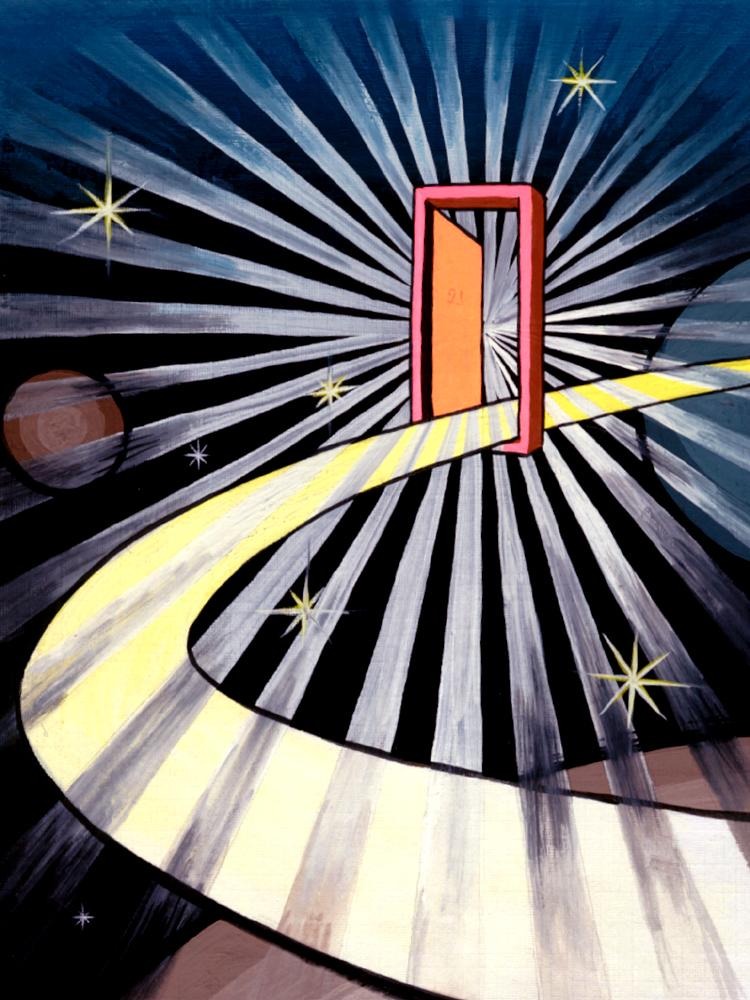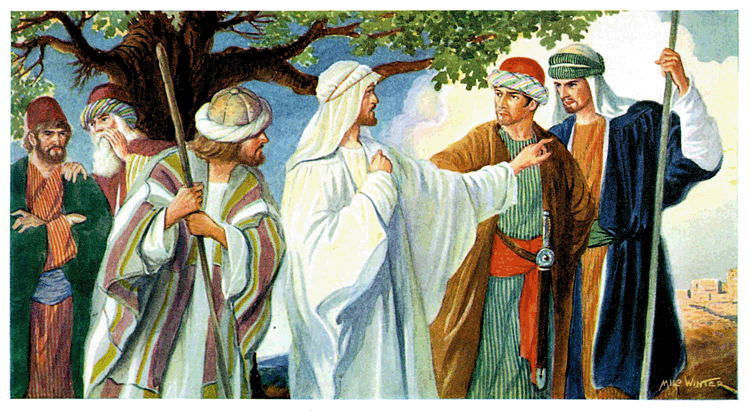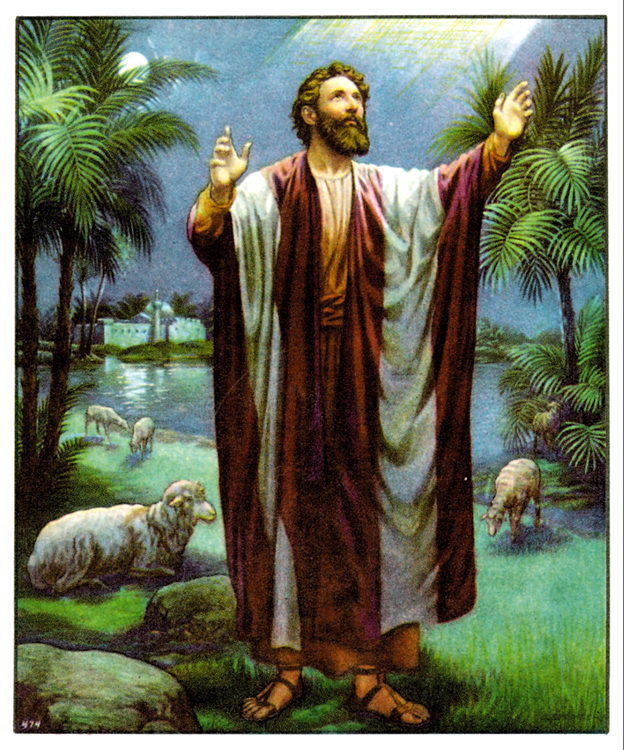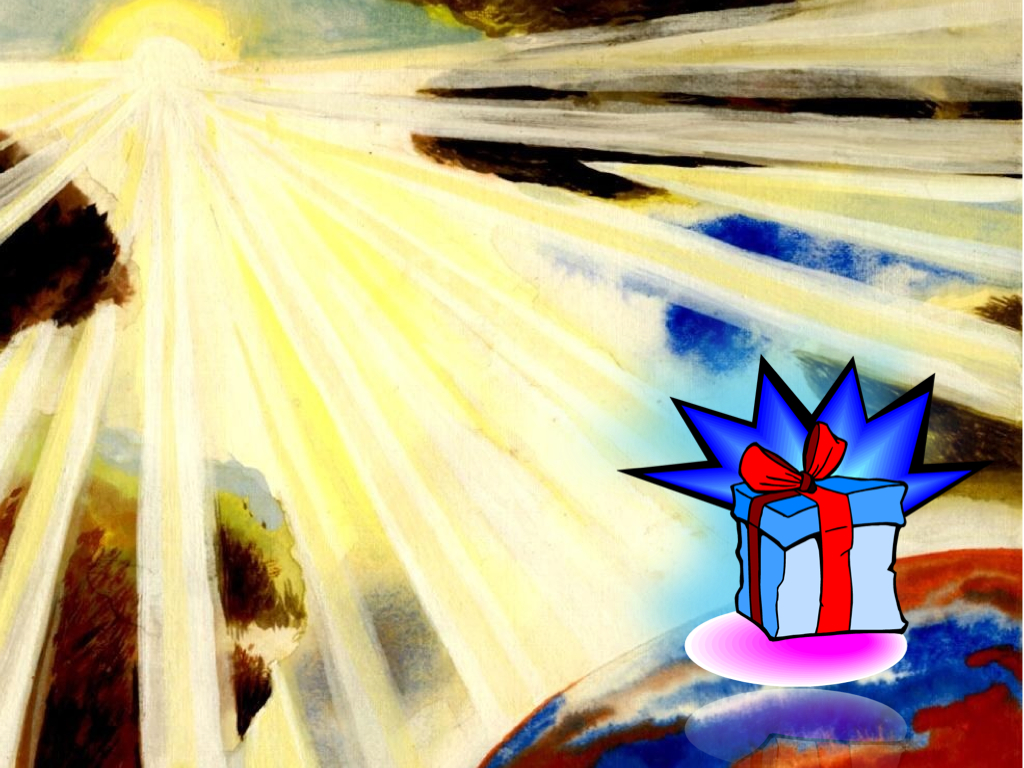
Matthew 7:13, Enter the narrow gate. Here Yeshua speaks of the straight gate and the narrow way that leads to life versus the wide and broad gate that leads to destruction. This narrow gate relates to Jacob’s dream of a ladder to heaven.
In Genesis 28:10–22, we have the account of Jacob’s dream of a ladder reaching into heaven. The dream greatly amazed Jacob and afterwards he concluded that he had experienced a divine encounter. He named the spot where he had the dream Beth El meaning “House of El (God),” and he concluded that this spot was “the gate of heaven” (verse 17). In Hebraic thought, “the ladder” to heaven is equivalent to the Tree of Life, which is another term for the Torah of Elohim. We know that Yeshua was the Torah-Word of Elohim made flesh ( John 1:1,14). Not only that, Yeshua likened himself to a ladder reaching to heaven (John 1:51).
Furthermore, we see both Moses and Joshua describing the Torah-law of Elohim as a (narrow, by implication) path from which one must turn neither to the left nor to the right (Deut 5:32; 17:11, 20; 28:14; Josh 1:7; 23:6). In Proverbs, the path of wisdom (i.e. Torah) is also likened to a (narrow, by implication) path from which one must not turn either to the left or to the right (Prov 4:27).
The term “gate” (or door) itself in Matthew 7:13 is a Hebraism referring to the means by which one enters into the Tabernacle or Temple of Elohim (Exod 27:14, 16; 32: 35:17; Ezek 40:3, 6, 7, 8, 9, 10, 11, 13 etc.). The Tabernacle (or Mishkan) of Moses was representative of the pathway to redemption or salvation. Before actually entering the tabernacle, one encountered the altar of the red heifer, which is a prophetic picture of the cross of Yeshua. To enter the tabernacle, one passed through a multi-colored gate. One of the colors was crimson, which represented the blood of lamb on the door posts of the Israelites’ homes on Passover eve. After that, one would come to the brazen alter of sacrifice, which pictures the new believer dying daily, after the example of Yeshua on the cross, and daily ingesting of the “blood” and “body” of Yeshua (pictured by the Christian ritual of communion), the Lamb of Elohim.
Yeshua fulfilled all these prophetic types and shadows. He said that he is the door or gate ( John 10:7, 9, 10) by which all must enter to have salvation (Acts 4:12), in order to have access to the Father in heaven (John 14:6). Yeshua told the rich young ruler that the Torah (both the Written Torah and Yeshua the Living Torah-Word of Elohim) was the path to eternal life (Matt 19:16–17). Moreover, the Torah points to Yeshua who was the “aim” or “goal” (not the “end” or “termination” of the Torah, as Rom 10:4 is often mistranslated as in most of our English Bibles) of the Torah who is the Living Torah-Word of YHVH ( John 1:1, 14). Yeshua said that he was the way (to the Father in heaven), the truth and the life ( John 14:6), and that the Word of Elohim is truth ( John 17:17). The only Word of Elohim that existed when Yeshua spoke these words was the Tanakh (or Old Testament).
Yeshua defined himself as the truth, so what is truth? How does Scripture define “truth”? In Psalm 119:142 and 151, David says that the Torah-law and Torah-commandments of Elohim are truth. It’s this simple! Any religious theology that attempts an end run head face into the truth of Torah. Period!
We see the concept of gates in the messianically prophetic verses of Psalm 118:19 and 20. Here the Messiah (Yeshua) is likened as gates of YHVH and gates of righteousness (Ps 119:172 defines “righteousness” as “all of thy Torah-commandments) which all the righteous shall enter.”
So Yeshua is the gate, or the straight way of life and truth, the door to salvation or redemption and the way to the Father in heaven. He is the Word of Elohim made flesh or the Living Torah (John 1:1, 14).






